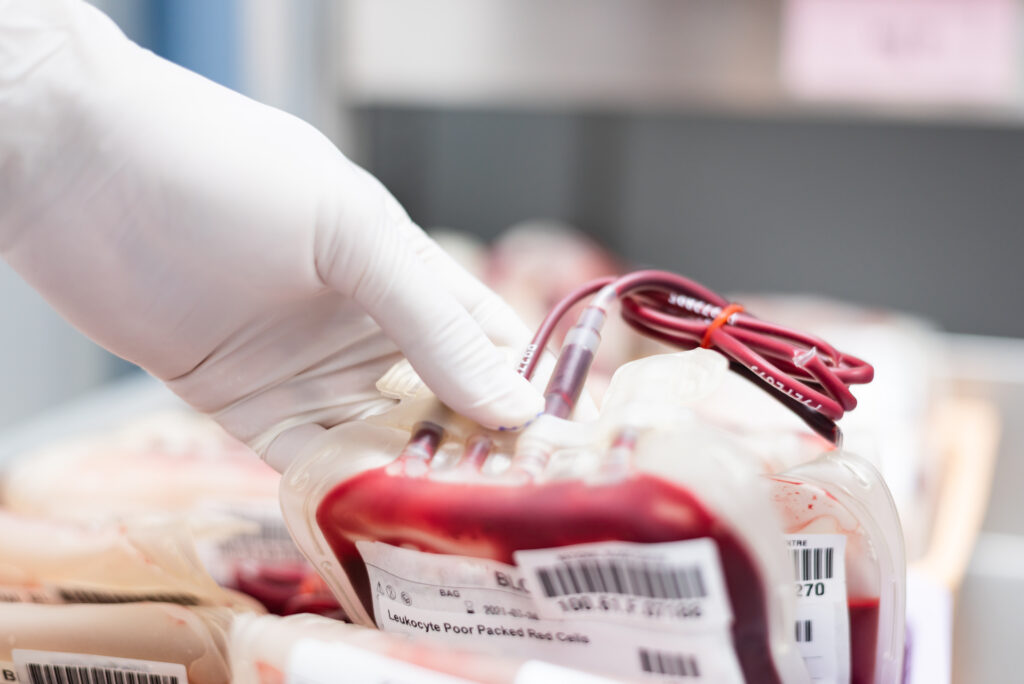
The Amish community has long been known for their distinctive way of life, adhering to traditional practices and shunning modern technology. But what about when it comes to matters of life and death? Do the Amish accept blood transfusions, a medical procedure that can mean the difference between life and death?
Amish may accept blood transfusions as there’s nothing in their beliefs and understanding of the bible that tells otherwise. They are likely to give their consent if they know that it’s for the benefit of the recipient.
In this brief exploration, we will delve into the Amish beliefs and practices surrounding medical treatments and examine their stance on this crucial issue.
The Amish Beliefs and Blood Transfusions

Blood transfusion is one of the most vital medical procedures today. It’s typically done when the body loses a lot of blood from injury or surgery. Compared with chemotherapy and surgery, it’s a less complicated life-saving medical treatment.
Some medical conditions and illnesses, such as kidney failure and leukemia, may require blood transfusions too. Without it, death may occur.
Now, do Amish accept blood transfusions?
The Amish people actually allow it. They are willing to either be the donor or the recipient if the situation requires it. They will never hesitate to respond when they know that a fellow Amish member is in crisis or a human body is suffering from a life-threatening illness.
The Amish as Faithful Blood Donors
The life-giving benefits of blood transfusions can be related to how the bible mentions blood every time a covenant is made. Since the Amish lifestyle and beliefs are fueled by how they almost literally interpret every word of the bible, it is understandable how they value blood and how it saves lives. For them, the “gift of blood” is a “gift of life.”
If the power of the blood could save tons of children in Israel in Exodus 12:22, could allow the high priest to approach the presence of God without getting struck dead in Leviticus 16:13-14, and could make people enter the holiest place in the temple in Hebrews 9:13-14; what more could blood do today especially in saving human life?
In the Amish culture, everyone lives according to their religious beliefs. There was the blood of the lamb that saved the firstborn children in ancient Israel, and there was the blood of Christ who saved everyone from sins. Undoubtedly, blood has been saving human lives since the beginning of time and continues to do so.
Contrary to what some people believe, the Amish know the essence of using modern medical services, including surgery, hospitalization, dental work, anesthesia, blood transfusions, etc., in saving human lives. Considering the Amish understanding of the bible, they will likely give their consent if they know that it’ll be good for their fellow Amish.
Can Amish Donate Organs?
For the Amish, the decision to donate an organ or tissue is up to them. Whether organ donors, tissue donors, or none of the above, their final say is and will never be affected by any religious law.
Every faithful Christian knows that a simple organ donation saves lives because the Christian Church encourages organ donation and other selfless ways to help neighbors.
As their teaching says, we were all created for God’s glory and to share our blessings. The Bible also says, “God has placed you in your neighborhood for a reason, and as Christians, we are called to love our neighbors as ourselves ” (Matthew 22:37-39).”
Since the Amish are Christians and read the same bible, they follow these teachings and apply them to their daily lives.
Can Amish People Get Organ Transplants?

The Amish Religion doesn’t forbid their congregation to seek the help of modern healthcare services and licensed medical personnel, especially when their health is at risk. At the same time, they believe people must live purely and free from external influences.
With that, an Amish transplant recipient will only agree or request organ donation or surgery if he or she is convinced that these options are the best for his or her own body and survival.
Although organ transplant is permitted, there is one exception – the heart. Only unbaptized Amish children with heart problems can have heart transplants after birth. Since heart disease rates are higher in the Amish, this could probably be an issue if not for their strong religious beliefs.
Are There Many Amish Organ and Tissue Donors?
The Amish people fully support organ and tissue donation. They see it as the deceased’s final act of generosity to save someone else’s life. However, due to the delay and disruptions in the Amish death traditions caused by the program, the Amish rarely agree to donate.
According to a funeral director serving the Amish in Lancaster County for almost seven decades, he has seen precisely two who proceeded to donate organs out of approximately 1,500 approved organ donors reviewed by the organization. He has also experienced his fair share of emotional Amish families venting out due to the delays.
Live Amish donors will not hesitate to give for kidney or part of liver donations if they know that it is the only way to help the transplant recipient. If the outcome is uncertain, it’s not uncommon for them to feel reluctant or even oppose donation.
Conclusion
Like the rest of us, the Amish value how important these life-saving treatments and modern medical services, such as blood transfusion and organ donations, are. Their generosity can extend up to this level. However, unlike the people outside their grid, they live by simplicity and centuries-old traditions derived from the bible that already define who they are.
The Amish life’s cornerstone is faith. They treat daily life as a spiritual activity. Therefore, nothing in this world could change how they usually do things inside their communities. If it comes to choosing between something written more precisely in the bible and something that is not, the first one will always be their choice.
